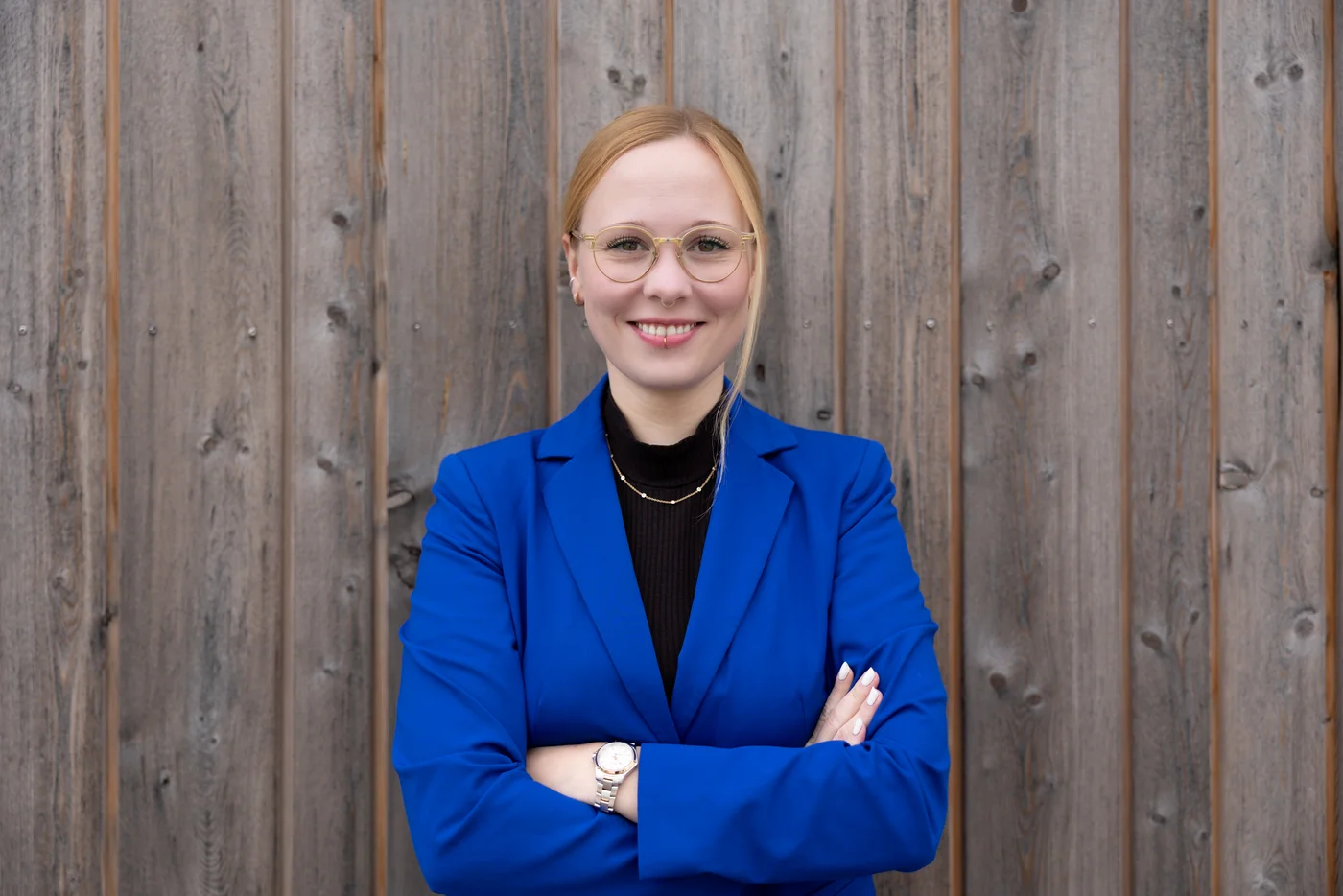What can scientific research learn from jazz improvisation? - Conversation with Laura Fischer
For a coffee with: A series of talks with interesting personalities from the UW/H environment.

The Professional Campus in conversation with Laura Fischer, UW/H graduate, lecturer in the Associate Competence Qualification Programme (GKE) - and jazz singer!
We spoke to Laura Fischer about the principles of good improvisation - and how these can be applied to teams and leadership dynamics in companies.
Professional Campus: Hello dear Laura! You have a unique history with UWH ... How did you find out about WifU and the GKE qualification programme?
Laura Fischer: My connection to UW/H goes back almost ten years now. I studied both Psychology (B. Sc., M. Sc.) and Ethik und Organisation (M. A.) here - and got to grips with complex systems, roles and change processes early on. The path to GKE was less "singularly planned" than characterised by lucky coincidences: During my second master's thesis, I set up my own business, started studying jazz singing at the same time - and began to explore what scientific research can learn from jazz, especially from improvisation. This gave rise to the idea of transferring the principles of good improvisation - such as high competence, but also presence, responsiveness and collective awareness - to teams and leadership dynamics in companies. I then presented a workshop concept to the FUK team at the time - and was able to try out the first improvisation methods in a workshop with the participants at the Family Business Congress 2024 together with my colleague. The feedback was consistently positive - including from Birgit Beßler, who took part in the workshop and also represented the Professional Campus. This led to the invitation to take part in the GKE. My first cohort, which I have the honour of accompanying, is now almost complete - I am very much looking forward to the next cohort, which will start in September.
Professional CampusYour entry into the programme is definitely an enrichment: a colleague who was able to get a taste of your seminar raved about it; the latest participant evaluations are unreservedly positive. Can you tell us more about your role in the GKE programme?
Laura Fischer: My aim is to create an experiential space in which participants can resonate with themselves and their impact. I bring together my perspectives as a psychologist, systemic psychotherapist and singer. We work with voice, support and body language as well as with inner attitudes and expectations. One exercise I offer: I hand out rhythm instruments with the invitation to react to each other in real time. It often becomes clear that leadership is not just about competence, but also about active listening, recognising the perception of others, communication and, in particular, the courage to break through patterns of behaviour. It is about acting in a situational and coherent way - not about performing "correctly". The ability to reach agreement also plays a role here - especially when areas of tension arise and you cannot fall back on a clear right or wrong.
"Leadership is not just about expertise, but also about active listening, recognising the perceptions of others, communication and, in particular, the courage to break through behavioural patterns."
Professional Campus: Showing presence, creating spaces, acting with gravitas or even 'parquet-proofing': It is obvious that people in positions of responsibility should master a broad repertoire - even if situational, body-based training is not usually part of their basic training. Is there not then a danger that leadership will be confused with seduction if the focus is on image? How are the modules practised and where does the emphasis lie?
Laura Fischer: We don't work on a perfect "appearance", but on coherent expression - with the aim of acting consciously and responsibly. This means developing presence without pretending. It's about how voice, attitude and inner clarity work - not only in your appearance, but also in conversations, conflicts or decisions. And yes - the topic of ethics is central. We also work with self-enlightenment: Who am I as a person with responsibility? My approach is that impact is not created through roles, but through resonance.
Professional Campus: Being persuasive - being in tune, finding your own voice, overruling others...
Whether they like it or not, associates and their partners have to find their way into a group. Because they are part of complex systems & group dynamics. In this context, a close collaboration with Heiko Kleve has developed. How do you complement each other?
Laura Fischer: Our collaboration thrives on a change of perspective. Heiko brings a deep grounding in systems theory and an enormous range of counselling skills - I complement this with body- and experience-oriented methods from singing and psychotherapy. We often alternate between theoretical impulses and practical exercises, between analysis and personal experience. This creates a framework in which participants don't just "talk about" roles or dynamics, but can actually perceive and change them.
Professional Campus: Last but not least, the topic of jazz & improvisation plays a role with you.
How important is improvisation as a competence - and what is the essence of the added value for GKE participants who are willing to lead a family business through turbulent times and hand it over to the next generation and the generation after that?
Laura Fischer: For me, improvisation is a key skill in a world that cannot be completely planned. Jazz teaches us that: You don't have to know everything - but you have to be prepared to listen, react and play along. This is exactly what associates need: the ability to deal with uncertainties, to endure dissonance and still remain capable of acting. Improvisation does not mean arbitrariness, but clarity in the moment, openness to the new - and the confidence to create solutions together. This attitude not only strengthens your own resilience, but also your communication skills and awareness of collective processes.
Professional Campus: Thank you very much for these insights and the interview!